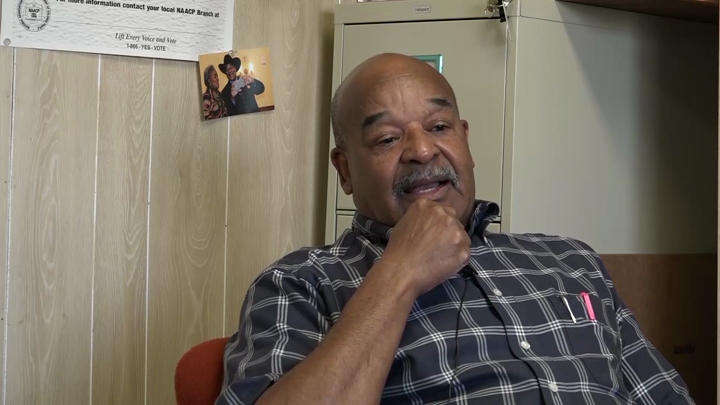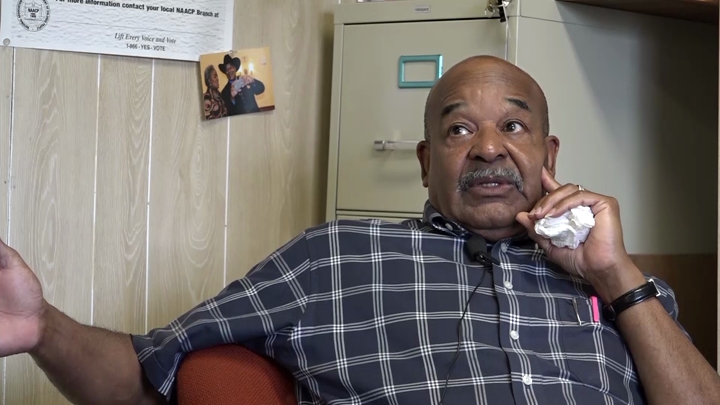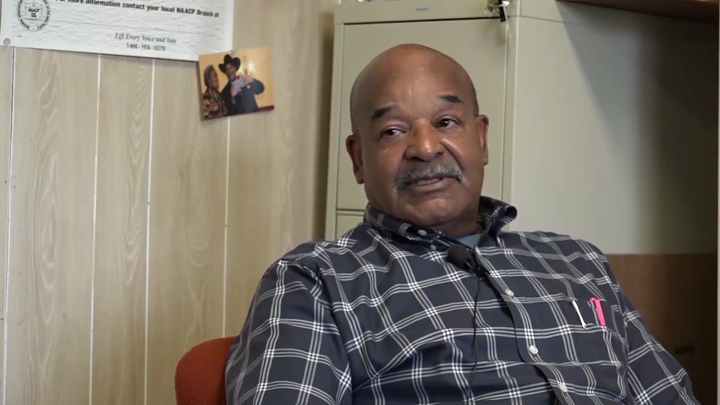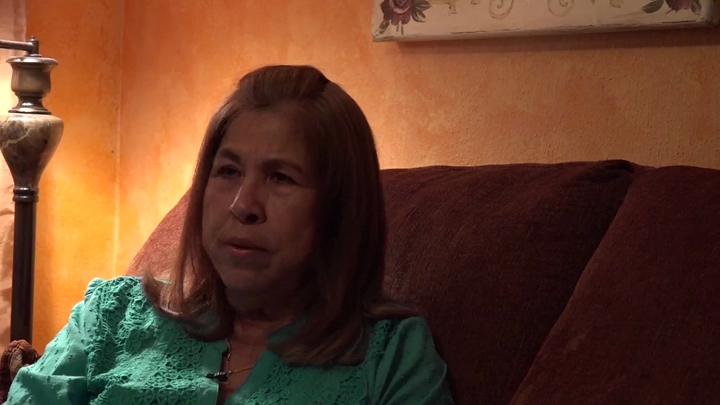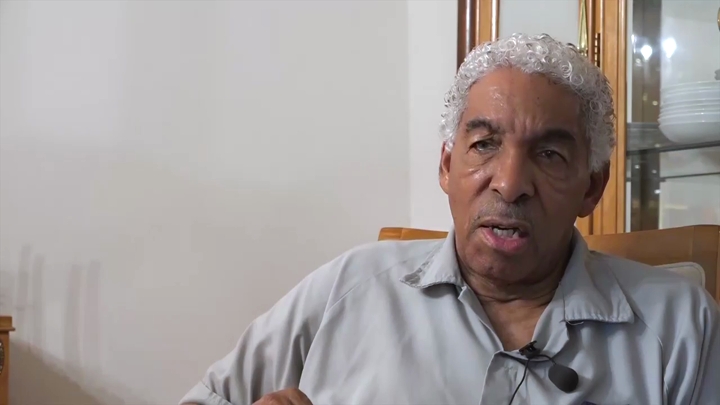Cross / Integrated Christmas Parties, Experiences Working as a Child
sign up or sign in to add/edit transcript
Cross: First thing he did, they had a black Christmas party and they had a white Christmas party and they had it on two different days. At the Christmas party they would give out turkeys or ham and they had a dance and they had a band playing and all of that. So, he got there and said, “We just going to have one party. We not going to have no black and white party. We just going to have one party. You can come if you want to and you’re not going to get your ham or your turkey unless you show up at the party.” So that’s one thing he changed. Then, he called me in. I’m just fresh out of the Marine Corps. He said, “I want to make you a waiter. I’m going to put you in the coffee shop. Ain’t nothing but white waiters, women, out there in the coffee shop.” So, he taught me everything I needed to know about waiting tables and everything and then he put me—he had a meeting with all these white waitresses, and said, “I’m putting Herbert in the coffeeshop. He’s going to have a section and if I hear anything about nigger or anything, I’m going to give you a pink slip.” He told all those waitresses that. So, I started working in the coffee shop. All the white women would sit at my station. They’d come in and ask where’s your station. They’d sit at my table. So, I just had a good time. Then I would do room service a lot too. Take food to rooms and stuff. They’d be ordering, and I’d do all that stuff. There’s one woman—I’m going to let y’all go—but my first job I was a bread boy. I was seven years of age and the bread boy worked in the dining room. I had on looked like one of these cooks—big hat, white hat, and I had on a white suit. Seven years of age and I had a thing with a cloth over it and I had all kind of bread. Gingerbread, corn bread muffins, corn bread sticks, biscuits, and the yeast rolls and I had all of that in there. So, when they’d serve the entrée I’d go up and raise up my cloth and they’d get their bread and that was my first job. I stayed in that job until I got too old. My other brothers had already worked that job. They started and then as they got to old, they went to bussing dishes or something and then the next brother would come up. There was five of us. Five brothers. So, I was the fourth one. So, I had served everybody bread and I went back in the kitchen and there’s a waitress at the chef—she kind of always hanging around the chef because he was over everybody. She came up to me and I was just sitting in a chair holding my bread and she said, “Go get me a glass of water.” I’m seven years of age and I said, “That’s not my job.” She slapped me so hard. Just POW. I started crying. Seven years of age. She slapped me hard and I went and told the chef. I’m crying, and I said, “She slapped me.” He said, “For what?” I said, “She wanted me to go get her some water and I told her it wasn’t my job.” He said, “I’ll take care of it.” He went over there to where she was and they both were laughing and I’m saying he’s not taking care of anything. I’ll always remember that. Then, I went to the Marines and came out. I went back to this same coffeeshop where I was a bread boy and this same woman was working in there. Still a waitress. So, I never told her, but when he put me in the coffeeshop as a waiter, she was there. Her station was right next to mine, but she didn’t recognize me because I wasn’t but seven when she slapped me. I just felt sorry for her when I looked at her. I just felt sorry for her. I could have just knocked her out to outer space, but I never told her. I worked with her, but I never told her that I’m that little boy that you slapped that time. Never said a word. That’s things that happen to you. I just deal with it, but I should have just kind of tapped her up little bit but, you know, I won’t do that. I won’t even let her know that I’m that same boy. I just went on and get over it. That’s what you have to do, but I just think about why she would come up and ask me to get her a glass of water. Like I’m working for her or something. She didn’t know I was going to tell her that when I said it ain’t my job. I’m just seven but that ain’t my job to get you no water and she knocked fire from me. Here I run across her again, she’s still in that same position.
| Interview | Interview with Herbert Cross |
| Subjects | Work › Occupations |
| Work › Discrimination at Work › Discrimination at Work: Race and Ethnicity | |
| Race Relations › Race Relations with Other Ethnicities | |
| Work › Types of Work | |
| Ideology › Desegregation v. Integration | |
| Tags | Lufkin ISD |
| Integration of Jobs | |
| sign up or sign in to add/edit tags | |
| Interview date | 2016-06-20 |
| Interview source | CRBB Summer 2016 |
| Interviewees | Cross, Herbert |
| Interviewers | May, Meredith |
| Locations | Lufkin, TX |
| Duration | 00:05:40 |
| Citation | "Integrated Christmas Parties, Experiences Working as a Child," from Herbert Cross oral history interview with Meredith May, June 20, 2016, Lufkin, TX, Civil Rights in Black and Brown Interview Database, https://crbb.tcu.edu/clips/2415/christmas-parties-bad-waitress, accessed March 04, 2026 |


